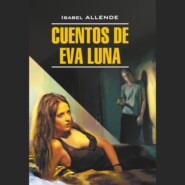По всем вопросам обращайтесь на: info@litportal.ru
(©) 2003-2024.
✖
Ripper
Настройки чтения
Размер шрифта
Высота строк
Поля
The two women had met one morning in December 2011. Indiana was locking up her bike and, out of the corner of her eye, noticed a woman leaning against a nearby tree as though she was about to faint. Indiana rushed over, offered the woman a shoulder to lean on, led her to the Holistic Clinic, and helped her up the two flights of stairs to Treatment Room 8, where the stranger slumped, exhausted, into one of the rickety chairs in the waiting room. After she got her breath back, the woman introduced herself and explained that she was suffering from an aggressive form of cancer and that the chemotherapy was proving worse than the disease. Touched, Indiana offered to let the woman lie down on the massage table and rest for a while. In a tremulous voice, Carol Underwater said she was fine in the chair but that she would be grateful for a hot drink. Indiana left the woman and went down the street to buy a herbal tea, feeling bad that there wasn’t a hot plate in the consulting room so she could boil water. When she got back, she found that the woman had recovered a little and even put on brick-red lipstick in a pathetic attempt to smarten herself up. Pale and ravaged by the cancer, Carol Underwater looked simply grotesque, her eyes standing out like glass buttons on a rag doll. She told Indiana she was thirty-six, but the wig and the deep furrows made her look ten years older.
So began a relationship based on Carol Underwater’s misfortune and Indiana’s need to play the Good Samaritan. Indiana often offered therapies to bolster Carol’s immune system, but she always managed to find some excuse for postponing them. At first, suspecting the woman couldn’t afford to pay, Indiana offered the treatments for free, as she often did with patients in straitened circumstances, but when Carol continued to find excuses, Indi did not insist; she knew better than anyone that many people still distrusted alternative medicine.
The women shared a taste for sushi, walks in the park, and romantic comedies, and were both concerned about animal welfare. Carol—like Amanda—was a vegetarian but made an exception with sushi, while Indiana was happy just to protest against the suffering endured by battery hens and laboratory rats and the fashion industry’s use of fur. One of her favorite organizations was PETA, which a year earlier had petitioned the mayor of San Francisco to change the name of the Tenderloin district: it was inexcusable that a neighborhood should be named after a prime cut from some suffering animal; the area should be renamed after a vegetable. The mayor did not respond.
Despite the things they had in common, Indiana and Carol’s relationship was somewhat strained, with Indiana feeling she had to keep a certain distance, lest Carol stick to her like dandruff. The woman felt helpless and forsaken; her life was a catalog of rejections and disappointments. Carol saw herself as boring, with no charm, no talent, and few social skills, and suspected that her husband had only married her to get a green card. Indiana gently advised that she needed to rewrite this script that cast her as the victim, since the first step toward healing was to rid oneself of negative energy and bitterness. Instead, Indiana suggested, Carol needed a positive script, one that connected her to the oneness of the universe and to the divine light, but still Carol clung to her misfortune. Indiana sometimes worried she might be sucked into the bottomless chasm of this woman’s need: Carol phoned Indiana at all hours to whine, and waited outside her treatment room for hours to bring her expensive chocolates that clearly represented a sizable percentage of her social security check. Indiana would politely eat these, counting every calorie and with no real pleasure, since she preferred the dark chocolates flecked with chili that she shared with Alan.
Carol had no children and no family, but she did have a couple of friends Indiana never met who accompanied her to the chemotherapy sessions. Carol’s only topics of conversation were her cancer and her husband, a Colombian deported for drug dealing whom she was trying to bring back to the States. The cancer itself caused her no pain, but the poison being dripped into her veins was killing her. Carol’s skin was deathly pale, she had no energy, and her voice quavered, but Indiana nurtured the hope that she might recover—her scent was different from that of the other cancer patients Indi had treated. What’s more, Indiana’s customary ability to tune in to other people’s illnesses didn’t work with Carol, something she took as a positive sign.
One day, as they were discussing this at the Café Rossini, Carol talked about her fear of dying and her hopes that Indiana would help her—a burden Indiana felt unable to take on.
“You’re a very spiritual person, Indi,” Carol said.
Indiana laughed. “Don’t call me that! The only people I know who claim to be spiritual are sanctimonious and steal books about the occult from bookstores.”
“Do you believe in reincarnation?” Carol asked.
“I believe in the immortality of the soul.”
“I’ve frittered away this life, so if reincarnation really does exist, I’ll come back as a cockroach.”
Indiana lent Carol some books she always kept at her bedside, an eclectic mixture of tomes about Sufism, Platonism, Buddhism, and contemporary psychology, though she didn’t tell the woman that she herself had been studying for nine years and had only recently taken the first steps on the long path to enlightenment; for her to attain “plenitude of being,” and rid her soul of conflict and suffering, would take eons. Indiana hoped that her instincts as a healer would not fail her; that Carol would survive her battle with cancer and have time enough in this world to achieve the enlightenment she sought.
On that Wednesday in January, one of Indiana’s clients had canceled a Reiki and aromatherapy session, so she and Carol arranged to meet at the Café Rossini at five. It had been Carol who suggested the meeting, explaining on the phone that she’d just started radiotherapy, having had two weeks’ respite after her last course of chemo. Carol arrived first, wearing one of the usual ethnic outfits that did little to hide her angular figure and terrible posture: a cotton shift and trousers in a vaguely Moroccan style, a pair of sneakers, and lots of African seed necklaces and bracelets. Danny D’Angelo, a waiter who had served Carol on several occasions, greeted her with an effusiveness many of his customers had come to fear. Danny boasted that he was friends with half the population of North Beach—especially the regulars at the Café Rossini, where he’d been a waiter for so long that no one could remember a time before he worked there.
“Hey, girl, I gotta say that turban you got on is a lot better than that fright wig you been wearing lately,” were his first words to Carol Underwater. “Last time you were here, I thought to myself, ‘Danny, you gotta tell that girl to ditch the dead skunk,’ but in the end, I didn’t have the heart.”
“I have cancer,” said Carol, offended.
“ ’Course you do, princess, even a blind man can see that. But you could totally rock the shaved-head look—lots of women do it these days. So what can I get you?”
“A chamomile tea and a biscotti, but I’ll wait till Indiana gets here.”
“Indi’s like Mother fucking Teresa, don’t you think? I tell you, I owe that woman my life,” said Danny. He would happily have sat down and told Carol Underwater stories of his beloved Indiana Jackson, but the café was crowded and the owner was already signaling to him to hurry up and serve the other tables.
Through the window, Danny saw Indiana crossing Columbus Avenue, heading toward the café. He rushed to make a double cappuccino con panna, the way she liked it, so he could greet her at the door, cup in hand. “Salute your queen, plebs!” Danny announced in a loud voice, as he usually did, and the regulars—accustomed to this ritual—obeyed. Indiana planted a kiss on his cheek and took the cappuccino over to the table where Carol was sitting.
“I feel sick all the time, Indi, and I’ve hardly got the strength to do anything.” Carol sighed. “I don’t know what to do—all I want is to throw myself off a bridge.”
“Any particular bridge?” asked Danny as he passed their table, carrying a tray.
“It’s just a figure of speech, Danny,” snapped Indiana.
“Just saying, hon, because if she’s thinking of jumping off the Golden Gate, I wouldn’t advise it. They’ve got railings up and CCTV cameras to discourage jumpers. You get bipolars and depressives come from all over the world to throw themselves off that freakin’ bridge, it’s like a tourist attraction. And they always jump in toward the bay—never out to sea, because they’re scared of sharks.”
“Danny!” Indiana yelped, passing Carol a paper napkin to blow her nose.
The waiter wandered off with his tray, but a couple of minutes later he was hovering again, listening to Indiana try to comfort her hapless friend. She gave Carol a ceramic locket to wear around her neck and three dark glass vials containing niaouli, lavender, and mint. She explained that, being natural remedies, essential oils are quickly absorbed through the skin, making them ideal for people who can’t take oral medication. She told Carol to put two drops of niaouli into the locket every day to ward off the nausea, put a few drops of lavender on her pillow, and rub the peppermint oil into the soles of her feet to lift her spirits. Did she know that peppermint oil was rubbed into the testicles of elderly bulls in order to—
“Indi!” Carol interrupted her. “I don’t even what to think about what that must be like! Those poor bulls!”
Just at that moment the great wooden door with its beveled glass panels swung open—it was as ancient and tattered as everything in the Café Rossini—and in stepped Lulu Gardner, making her daily rounds of the neighborhood. Everyone except Carol Underwater immediately recognized the tiny, toothless old woman. Lulu was as wrinkled as a shriveled apple; the tip of her nose almost touched her chin, and she wore a scarlet bonnet and cape like Little Red Riding Hood. She’d lived in North Beach since the long-forgotten era of the beatniks and was the self-professed official photographer of the area. The curious old crone claimed she had been photographing the people of North Beach since the early twentieth century when Italian immigrants flooded in after the 1906 earthquake, not to mention snapping pictures of every famous resident from Jack Kerouac (an able typist, according to Lulu), Allen Ginsberg, her favorite poet and activist, and Joe DiMaggio, who’d lived here in the 1950s with Marilyn Monroe, to the Condor Club Girls—the first strippers to unionize, in the 1970s. Lulu had photographed them all, the saints and the sinners, watched over by the patron saint of the city, Saint Francis of Assisi, from his shrine down on Vallejo Street. She wandered around with a walking stick almost as tall as she was, clutching the sort of Polaroid camera no one makes these days and a huge photo album tucked under one arm.
There were all sorts of rumors about Lulu, and she never took the trouble to deny them. People said that though she looked like a bag lady, she had millions salted away somewhere; that she was a survivor from a concentration camp; that she’d lost her husband at Pearl Harbor. All anyone knew for certain was that Lulu was Jewish—not that this stopped her celebrating Christmas. The previous year Lulu had mysteriously disappeared, and after three weeks the neighbors gave her up for dead and decided to hold a memorial service in her honor. They set up a large photo of Lulu in a prominent place in Washington Park where people came to lay flowers, stuffed toys, reproductions of her photos, meaningful poems, and messages. At dusk the following Sunday, when a dozen people with candles had gathered to pay a reverent last farewell, Lulu Gardner showed up in the park and promptly began to photograph the mourners and ask them who had died. Feeling that she had mocked them, many of the neighbors never forgave her for still being alive.
Now the photographer stepped into the Café Rossini, weaving between the tables like a dancer to the slow blues from the loudspeakers, singing softly and offering her services. She approached Indiana and Carol, gazing at them with her beady, rheumy eyes. Before anyone could stop him, Danny D’Angelo crouched between the women, hunkering down to their level, and Lulu Gardner clicked the shutter. Startled by the flash, Carol Underwater leaped to her feet so suddenly she knocked over her chair. “I don’t want your fucking photos, you old witch!” she yelled, trying to snatch the camera from a terrified Lulu, who backed away as Danny D’Angelo intervened. Astonished by this overreaction, Indiana tried to calm her friend, while a murmur of disapproval rippled through the café’s customers, including some who had been offended by Lulu’s resurrection. Mortified, Carol slumped back into her chair and buried her face in her hands. “My nerves are shot to shit,” she sobbed.
Thursday, 5 (#ulink_4f4d0fea-4976-5eb5-bcdd-fdf47de3c826)
Amanda waited for her roommates to grow tired of gossiping about Tom Cruise’s impending divorce and go to sleep before calling her grandfather.
“It’s two a.m., Amanda, you woke me up. Don’t you ever sleep, girl?”
“Sure, in class. You got any news for me?”
“I went and talked with Henrietta Post.” Her grandfather yawned.
“The neighbor who discovered the Constantes’ bodies?”
“That’s her.”
“So why didn’t you call?” his granddaughter chided him. “What were you waiting for?”
“I was waiting for sunup!”
“But it’s been weeks since the murders. You know this all happened back in November, right?”
“Yeah, Amanda, but I couldn’t make it out there any earlier. Don’t worry, the woman remembers everything. Got a shock that scared her half to death, but every last detail of what she saw that day is burned into her brain—the most terrifying day of her life, she told me.”
“So give me the lowdown, Kabel.”
“I can’t. It’s late, and your mom will be home any minute.”
“It’s Thursday—Mom’s with Keller.”
“But she doesn’t always spend the night with him. ’Sides, I need my sleep. I can send you the notes from my conversation with Henrietta Post and what I managed to wheedle out of your father.”
“You wrote it all down?”
“One of these days, I’m going to write a novel,” said her henchman. “I jot down anything that interests me, never know what might be useful to me in the future.”
“Write your memoirs,” suggested his granddaughter. “That’s what most old codgers do.”
“Nah—it would bomb, nothing worth writing about has ever happened to me. I’m the most pitifully boring widower in the world.”
“True. Anyway, send me those notes on the Constantes. G’night, Hench. You love me?”
“Nope.”















